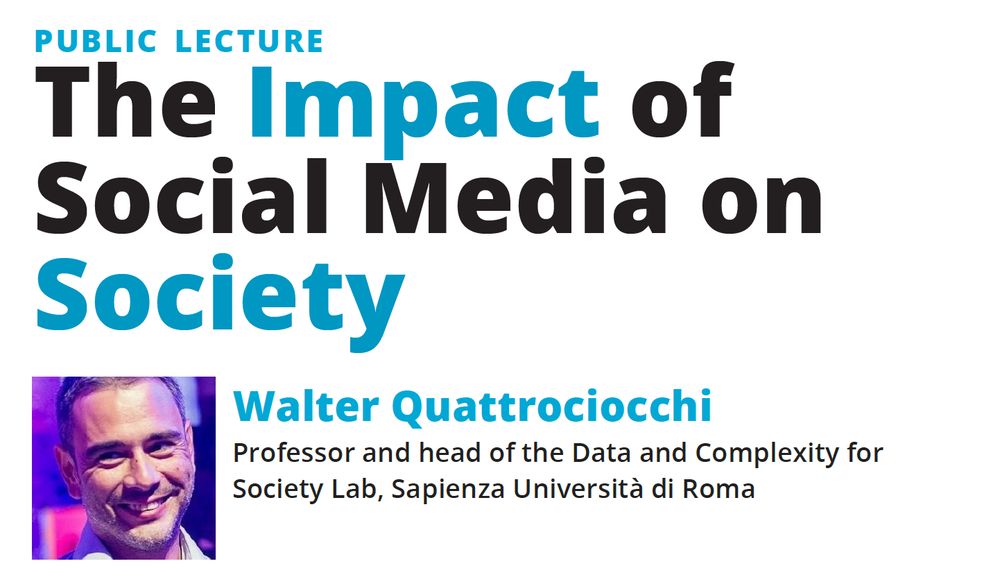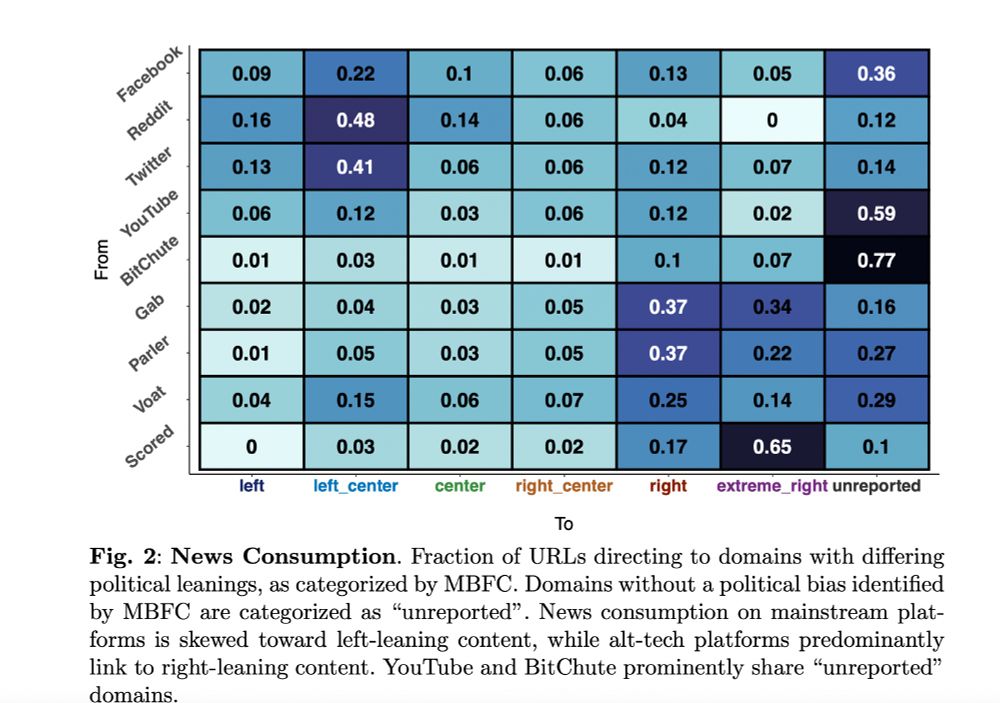Reposted by: Walter Quattrociocchi
Reposted by: Walter Quattrociocchi
⛓️💥For online attendants, please register here: bit.ly/3FomgkF

Reposted by: Walter Quattrociocchi
Read the full paper here: link.springer.com/article/10.1...
We hope this sparks new conversations about the value of attention in the digital age.
Let us know your thoughts! 💬

In the attention economy, chasing virality is risky. Instead, building consistent, sustained engagement is key to forming lasting connections with users.
This suggests that collective attention is elastic and influenced by pre-existing engagement trends.
A "like" or viral post is often fleeting—it doesn’t guarantee long-term impact.
Viral events rarely lead to sustained growth in engagement.
We identified two types of virality:
1️⃣ "Loaded" virality: The final burst after a growth phase, followed by a decline.
2️⃣ "Sudden" virality: Unexpected events that briefly reactivate user attention.
Our goal: Understand the impact of viral posts on user engagement, from short-term spikes to long-term trends.
In the quantitative study of the attention economy, we asked a key question:
How much does a like—or a viral post—truly reverberate?
Our new study, published in Scientific Reports, dives into this crucial topic. 🧵

Reposted by: Walter Quattrociocchi
A follow-up to this Nature paper (www.nature.com/articles/s41...)
has just been published in PNAS:
www.pnas.org/doi/10.1073/...

Reposted by: Walter Quattrociocchi
What does this mean for the future of language?
Simplification can democratize communication but risks impoverishing public debate and cultural diversity.
How can we balance accessibility with complexity?
Social media business models incentivize short, emotional, and easily shareable content.
The result? Simpler but less rich language, shaped by the rules of engagement.
Simplification of language may affect how we articulate and share ideas.
Fewer words = fewer nuances?
👉 A risk for public debate, but also an adaptation to the digital age.
Language has simplified: shorter texts and less diverse vocabulary.
Users continue to innovate, introducing new terms at a steady pace.
These changes are platform-agnostic: a near-universal phenomenon.
We collected 300 million English comments from platforms like Facebook, Twitter, Reddit, YouTube, and Telegram, covering data from 1990 to today.
We measured:
Lexical richness
Text length
Introduction of new words
We analyzed 34 years of data a cross 8 social media platforms to uncover how language has evolved in the digital age.
👉 Read the paper here www.pnas.org/doi/10.1073/...

Our study provides a quantitative framework to understand these dynamics and inform policies to mitigate their societal impact.
Alt-tech platforms are niches of ideological homogeneity & questionable content.
Mainstream platforms are diverse but internally polarized.
1️⃣ Centrality: Are platforms central or peripheral in the information ecosystem?
2️⃣ Content reliability: Reliable vs questionable news.
3️⃣ User base: Diverse vs homogeneous communities.
We call this phenomenon Echo Platforms—platforms where ideological uniformity dominates.
"Characterizing the Fragmentation of the Social Media Ecosystem" arxiv.org/abs/2411.16826
@matteo_cinelli
,
@m_starnini
edoardo di martino Alessandro Galeazzi #echoplatforms #fragmentation
